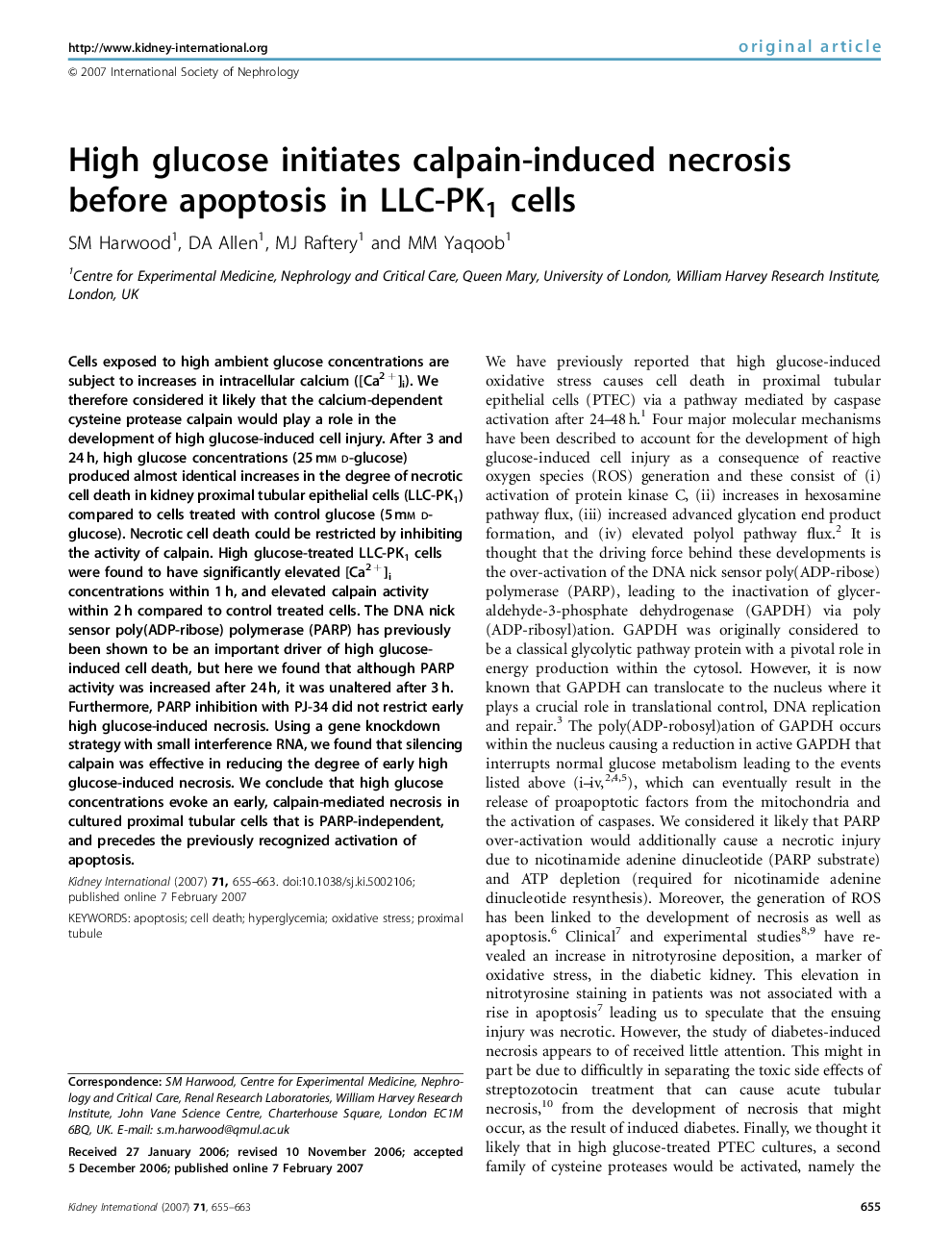| کد مقاله | کد نشریه | سال انتشار | مقاله انگلیسی | نسخه تمام متن |
|---|---|---|---|---|
| 3889187 | 1249648 | 2007 | 9 صفحه PDF | دانلود رایگان |

Cells exposed to high ambient glucose concentrations are subject to increases in intracellular calcium ([Ca2+]i). We therefore considered it likely that the calcium-dependent cysteine protease calpain would play a role in the development of high glucose-induced cell injury. After 3 and 24 h, high glucose concentrations (25 mM D-glucose) produced almost identical increases in the degree of necrotic cell death in kidney proximal tubular epithelial cells (LLC-PK1) compared to cells treated with control glucose (5 mM D-glucose). Necrotic cell death could be restricted by inhibiting the activity of calpain. High glucose-treated LLC-PK1 cells were found to have significantly elevated [Ca2+]i concentrations within 1 h, and elevated calpain activity within 2 h compared to control treated cells. The DNA nick sensor poly(ADP-ribose) polymerase (PARP) has previously been shown to be an important driver of high glucose-induced cell death, but here we found that although PARP activity was increased after 24 h, it was unaltered after 3 h. Furthermore, PARP inhibition with PJ-34 did not restrict early high glucose-induced necrosis. Using a gene knockdown strategy with small interference RNA, we found that silencing calpain was effective in reducing the degree of early high glucose-induced necrosis. We conclude that high glucose concentrations evoke an early, calpain-mediated necrosis in cultured proximal tubular cells that is PARP-independent, and precedes the previously recognized activation of apoptosis.
Journal: Kidney International - Volume 71, Issue 7, 1 April 2007, Pages 655–663